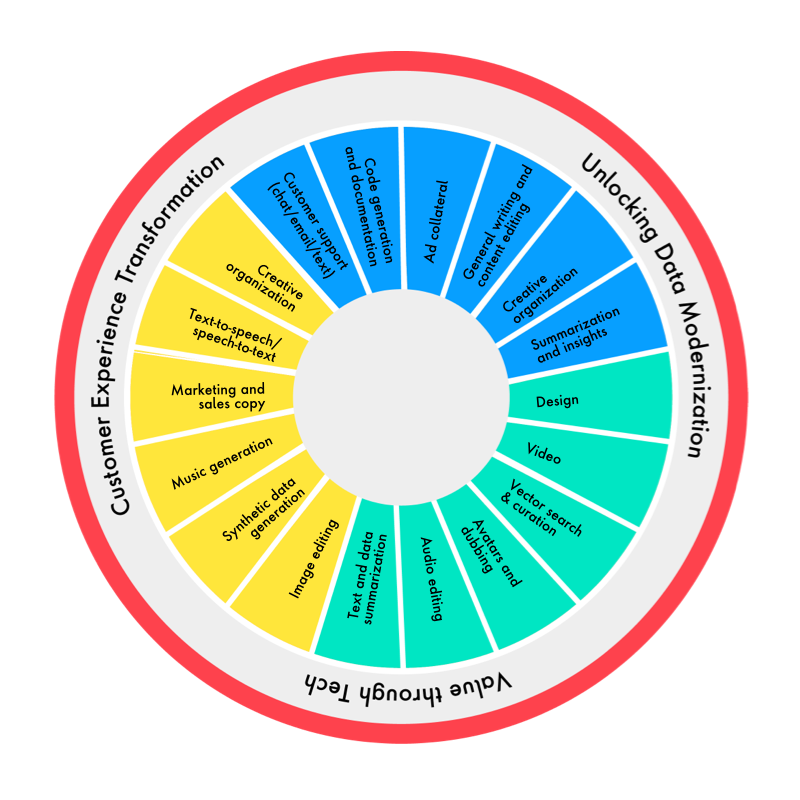In January 2023, generative AI chatbot ChatGPT reached an estimated 100 million monthly active users—just two months after launch—making it the fastest-growing consumer application in history. Yes, that’s including TikTok, Instagram, Twitter and Facebook. So, what’s the big idea—is this all just hype, or will this be a game-changing play to stay competitive in the space? How can generative AI impact business as we know it?
This new wave of generative AI technologies has the potential to change entire industries at the click of a button. To remain a market leader and stay competitive in the space, organizations will need a clear and compelling generative AI strategy. Businesses can use generative AI to enhance workflows rather than replace human roles—with a more human-AI collaboration in mind. With the technology rapidly evolving, it’s critical to understand the business imperative behind generative AI and how organizations can best meet the moment.
Make the most of your relationship with AI: Generative AI business value
Generative AI isn’t just about bringing automation to the forefront; it’s about creating a reciprocal relationship where organizations can reimagine how humans get work done with generative AI at their fingertips. Humans give generative AI context and generative AI can then deploy.
With proper strategy and execution in place, generative AI can begin to unlock business use cases for organizations to scale. Here are some of the business use cases for generative AI.



















